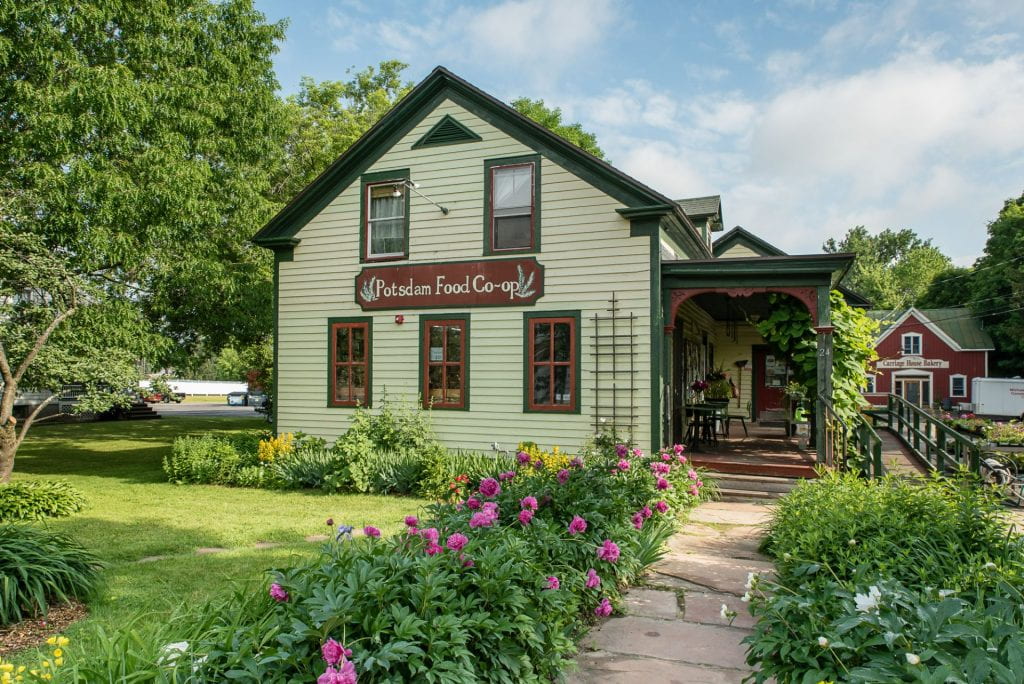
The Potsdam Food Co-op was recently awarded $1.65 million as part of the Downtown Revitalization Initiative funding for the town of Potsdam. These funds will be used to move the Co-op to a larger location on Market Street. We spoke with Andy Peet, the Co-op’s General Manager, to learn more about how this project will impact our local food system. You can read the full proposal online to learn more about how the DRI funds will be used here.
What does the Downtown Revitalization Initiative funding mean for the Co-op in the long term?
Our DRI project proposal was contingent on those funds. Now that the state has announced that the Co-op has been rewarded the funding we can take the first steps toward expansion and relocation. Had we not received our request from the DRI the next step would have been to look for funding elsewhere.
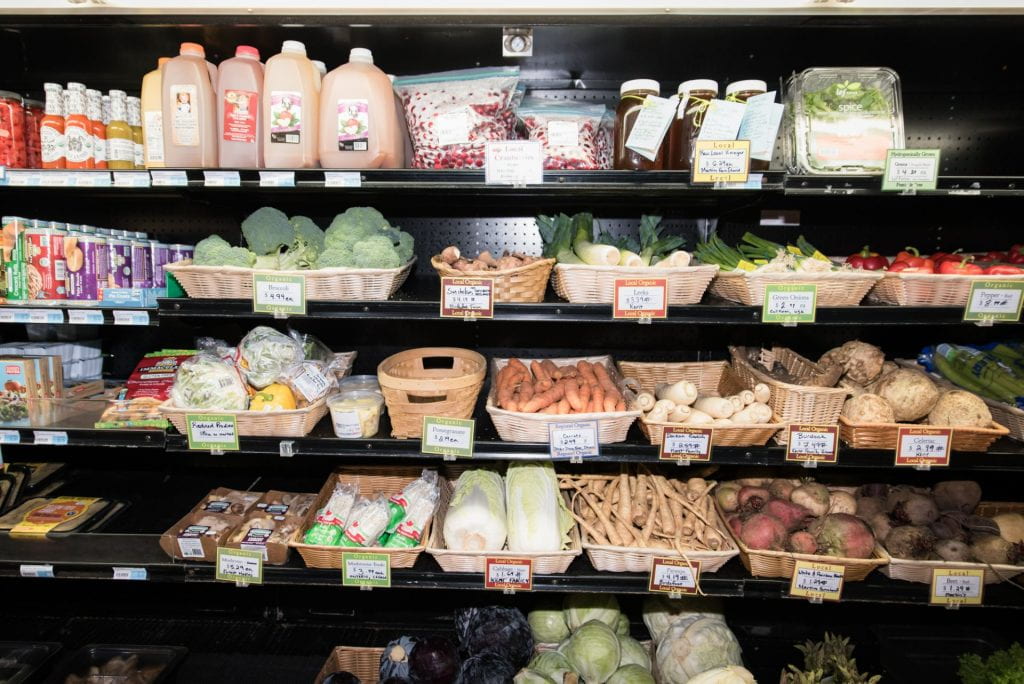
Your proposal states that 21% of all store purchases in 2018 were made from local farmers and producers in the region. Do you have a goal in mind for increasing the percentage of local purchasing in your new location?
Having a larger and more central location will certainly allow us to sell a larger volume of local produce and goods. At this point, it’s hard to say if it will help increase that particular percentage, but I would like it to. As a Potsdam native, I know that there are pockets in our community where our reach is relatively low. That’s where much of our projected sales increase can come from – expanding our audience and increasing awareness and visibility. Having more people in our store could create a higher demand for local products.
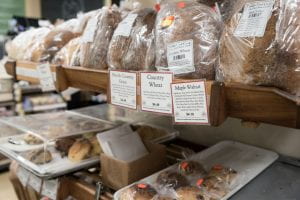
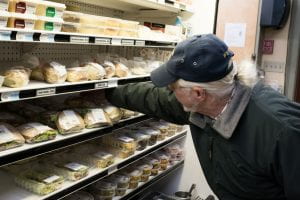
Are there locally grown or produced items there isn’t space for in the current store, but that increased storage and shelf space will enable the Co-op to stock in the future?
More space could improve selection in many areas. A great example is local plants for home gardening; there is an immense variety of plants available from Moses Yoder and Never Tire Farm but our low sales volume causes us to keep our selection kind of narrow. Another thing is there are more soap makers, crafters, and local artists than our current store can support. We’d love to include more of them as well.
When it comes to local produce it isn’t so much an issue of space. Let’s say, for example, we have three local farmers offering to sell the Co-op cucumbers, but our sales volume and customer demand only allow us to buy cucumbers from one farmer. We try to spread it around in terms of who we buy particular items from. If our larger location entices more people to buy local cucumbers, that will enable us to buy cucumbers from all three of those farmers to keep up with demand. In other words, our current selection is robust, but could easily increase in volume. And yes, more space is one of the keys to making that happen.
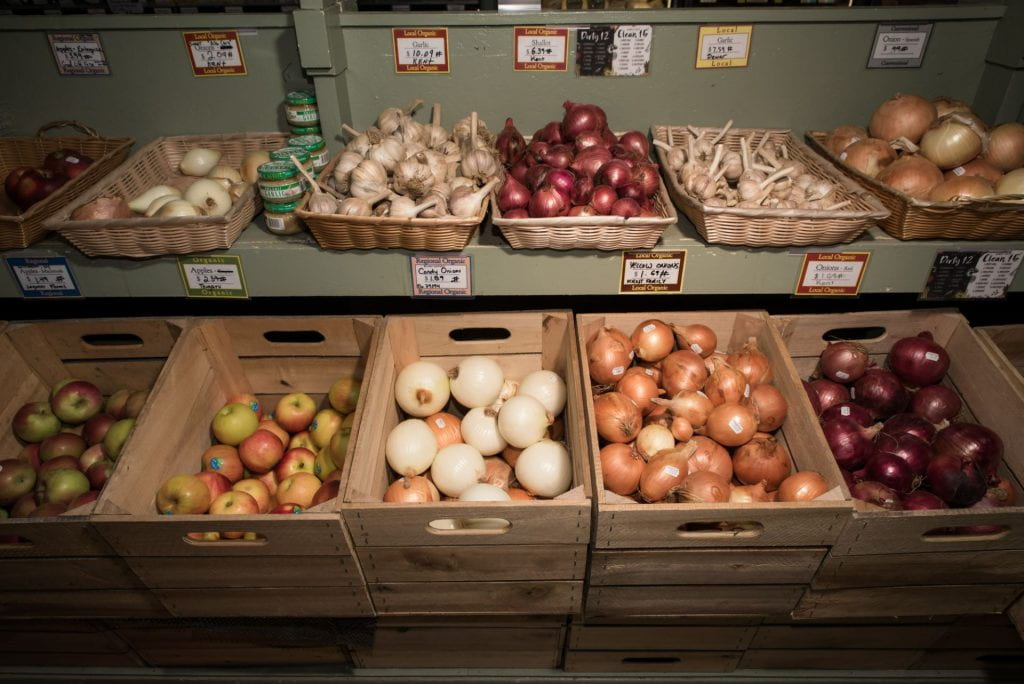
Do you have some community partnerships in mind when you imagine the expanded Co-op?
We’ll certainly look to expand our Business Partnership Program, particularly to those local businesses who work toward similar goals as we do, like the ones outlined by the 7 Cooperative Principles and our Ends Policy. We’ll continue to work with local nonprofits like the Neighborhood Center, Garden Share, Local Living Venture, and others. We try to provide our members a bridge to a wide network of local businesses and programs, and a larger store can help that if it can attract a larger audience.
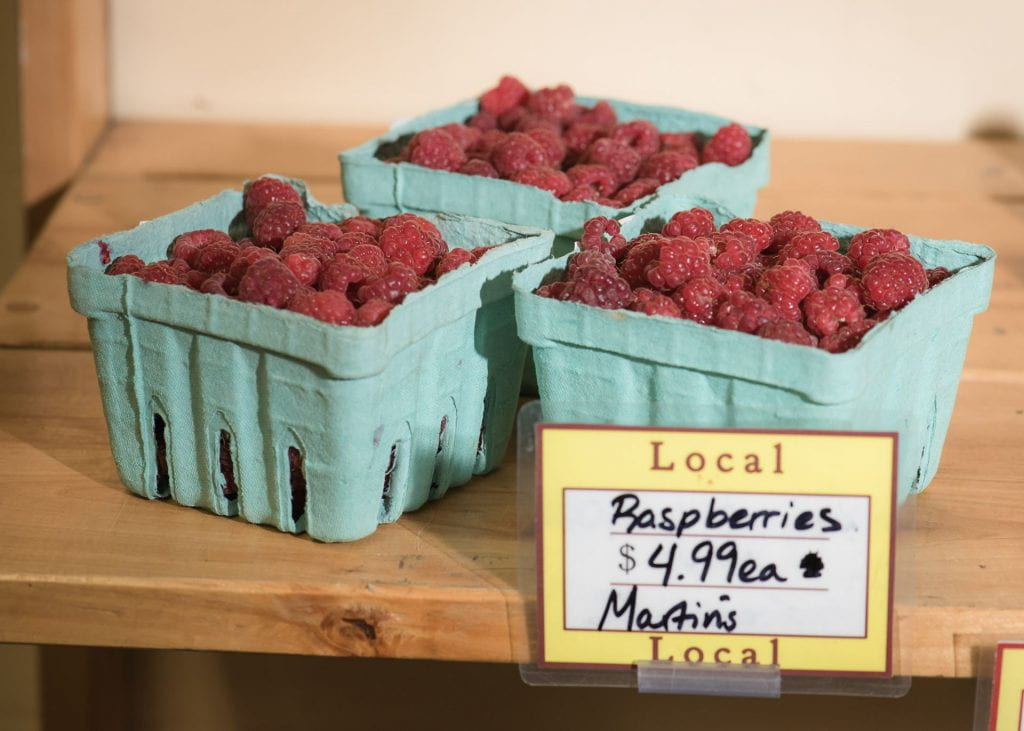
Could you tell us about the possible addition of a Farmers Market that you mentioned in the Proposal – how would that interact with the current Saturday market?
There is potential for an opportunity for the Co-op to partner with the Potsdam Farmers Market. It’s a natural pairing as farmers’ markets attract the same kind of shoppers as co-ops. Perhaps that partnership could involve supplying an alternate location or space for an indoor farmers market for fall and winter, but no plans have been made yet.
Are there plans to have space for classes that might promote the use of local foods?
We do have plans to include a classroom/meeting area and a demonstration kitchen. Community outreach and education are very important (some of those 7 Cooperative Principles I mentioned). A space for classes on cooking, nutrition, canning, gardening, etc. can do a lot of good for the promotion of locally grown food. The average shopper is becoming more food conscious but there’s still a lot to be learned and the Co-op should be a local source for that knowledge.
Lauren grew up in neighboring Vermont exploring and loving the green mountains and vast landscapes. Her undergraduate degree made her appreciate the communities that surround local foods and a Master’s Certificate in Food Studies from the University of Southern Maine made her want to pursue a career in the food system. In 2021 and 2022, she was the Local Foods Marketing and Development Educator for Cornell Cooperative Extension of St. Lawrence County.